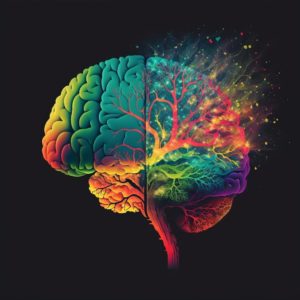All the rage… but what does it mean?
Neurodivergent is one of the latest buzz words on most online platforms at the moment. We have numerous social media influencers, and diversity and inclusion specialists highlighting the ways in which we, the neurodivergent folk, can be better accommodated in workplace environments and in day-to-day life in general. However, what exactly does it mean to be neurodivergent? Are we just mutants with yet to be discovered superhero powers (I call dibs on botanical communication! My monstera needs to explain why she keeps trying to die)? Or are we CPUs with faulty circuitry and no manual to fix it?
In simple, jargon-free terms, neurodivergent is a non-medical word that describes people whose brains develop or work differently. These differences may entail different social preferences, ways of learning, ways of communicating and/or ways of perceiving the environment around us.
The term “neurodivergent” came from the related term “neurodiversity” which was coined by Australian sociologist, Judy Singer, in 1998. Singer, a neurodivergent herself, wanted a term that recognizes that everyone’s brain develops in a unique way. The fact that it is a non-medical term is significant because instead of using words such as “normal” or “abnormal”, we acknowledge that there’s no single definition of how a “normal” human brain works. Like our fingerprints, no two brains — not even those of identical twins — are exactly the same. Thus, there is no singular definition of “normal” capabilities for the human brain.
In simple, jargon-free terms, neurodivergent is a non-medical word that describes people whose brains develop or work differently. These differences may entail different social preferences, ways of learning, ways of communicating and/or ways of perceiving the environment around us.
The term “neurodivergent” came from the related term “neurodiversity” which was coined by Australian sociologist, Judy Singer, in 1998. Singer, a neurodivergent herself, wanted a term that recognizes that everyone’s brain develops in a unique way. The fact that it is a non-medical term is significant because instead of using words such as “normal” or “abnormal”, we acknowledge that there’s no single definition of how a “normal” human brain works. Like our fingerprints, no two brains — not even those of identical twins — are exactly the same. Thus, there is no singular definition of “normal” capabilities for the human brain.
Are you neurodivergent?
So after reading through this, you start thinking about the numerous times people called your behavior or the behavior of a family member “strange” and you start to wonder: am I neurodivergent? Is my daughter who struggles to make eye-contact and is obsessed with horses neurodivergent? Neurodivergent folk can be characterized by some of the following signs:
- Struggling with reading and writing.
- Clumsiness.
- Finding it hard to cope with crowds, bright lights, loud, sudden noises, or social situations.
- Difficulty with focusing or keeping still.
- No smiling or social responsiveness.
However, this is not a definitive list. The first step to answering your questions is to talk to your healthcare provider. They can refer you to a specialist or mental health practitioner (like us) who can determine if you have a medical condition or other brain-related differences that might explain why your brain works atypically. It can be an arduous and frustrating process, but we are specially trained to make it as informative and goal-oriented as possible.
And as we continue our journey into the wonderful world of neurodiversity, we will explore some of these conditions more thoroughly in future posts. Additionally, please remember to pack your curiosity, empathy and kindness for yourself and others. After all, we are all just walking each other home.






